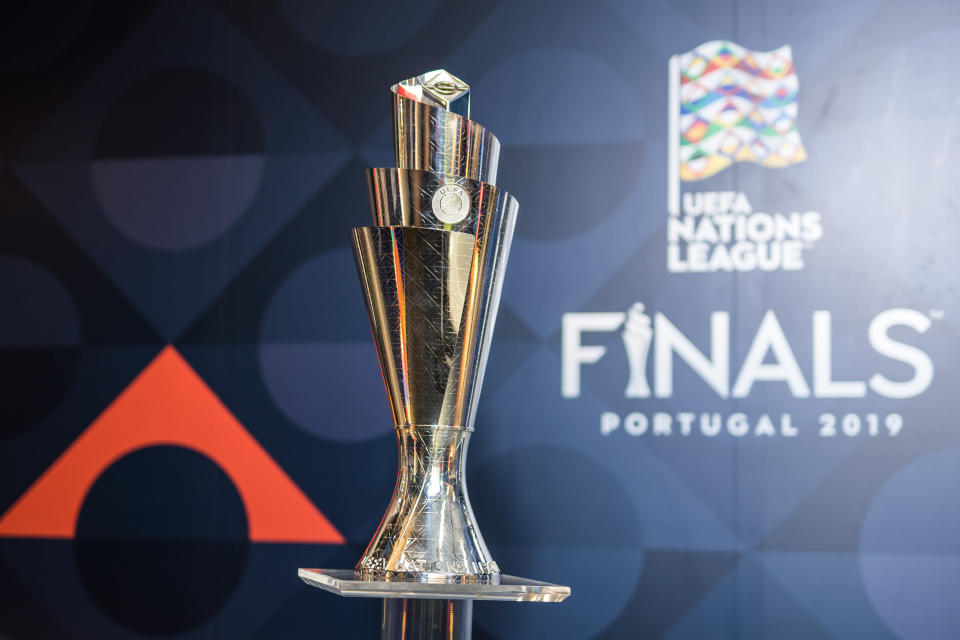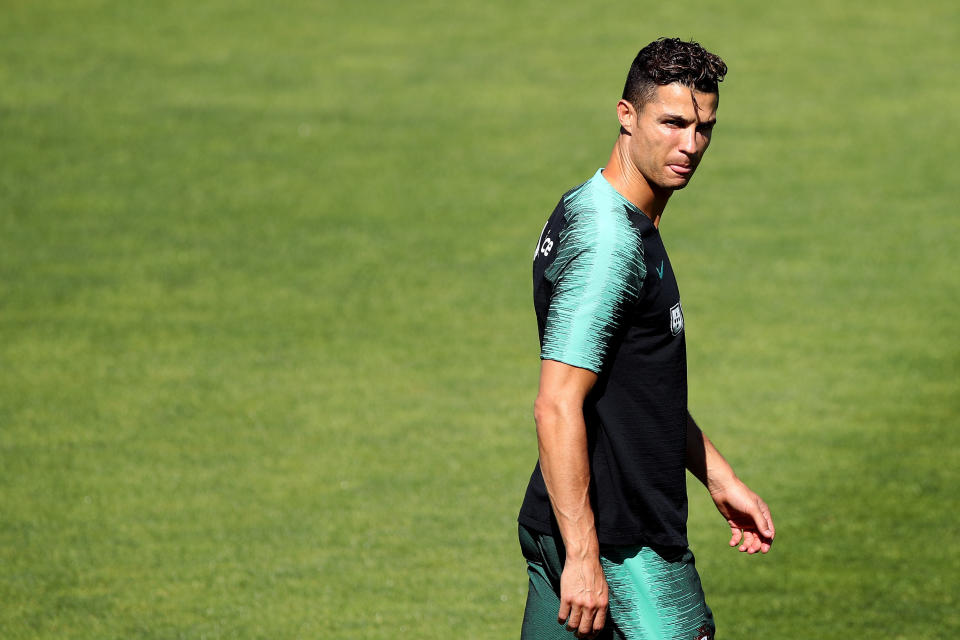What to know about this week's UEFA Nations League Finals, from Ronaldo to Euro 2020 implications
This summer promises an incredible amount of soccer, with Women’s World Cup, the Copa America, the Gold Cup, the Copa America and the U20 World Cup all competing for your attention.
In addition to that smorgasboard of international festivities, the UEFA Nations League Finals are also taking place this week. Here’s everything you need to know…
What are the UEFA Nations League Finals?
Quite simply, they are the playoffs of the 2018-19 UEFA Nations League, which will determine a winner of the competition.
The UEFA Nations League, in case you need reminding, is the standalone competition that began in September 2018, in order to replace meaningless international friendlies with competitive matches.
The 55 member nations were divided into four leagues according to their ranking coefficient. Those leagues were each split into four groups, who played each other round-robin style. (For example, England, Spain and Croatia were in a group and played each other home and away.)
Still following? Good. The four teams who finished top of their respective groups in League A – the Netherlands, Switzerland, Portugal and England – advanced to the UEFA Nations League Finals. They are your final four.
The Finals are organized in a knockout format: There are two semifinals, a final and a third-place playoff.
The winner will be the first-ever recipient of the brand-new sparkly UEFA Nations League Trophy.

Who is in the UEFA Nations League Finals?
It’s the aforementioned winners of the four groups in League A.
The Netherlands were heavily expected to finish at the bottom of a group with France and Germany, but they managed to take four points from Joachim Loew’s ailing side and beat the world champions in Rotterdam in November to top the group. The Dutch were fairly gleeful when their 2-0 victory over France condemned their arch rivals Germany to relegation.
Switzerland arguably made up 33 percent of the weakest group in League A, along with Belgium and Iceland. They too were expected to finish rock-bottom, but kicked off the campaign with a 6-0 drubbing of Iceland and closed it out with a 5-2 demolition of the Belgians. Swiss newspaper the Luzerner Zeitung called the classy victory over the Red Devils “The miracle of Lucerne.” Belgium only needed a point to top the group and the Swiss had been humiliated by Qatar the previous week, so the result was fairly unexpected.
Portugal were dragged across the line by star man Cristiano Ronaldo at Euro 2016, but the Juventus superstar didn’t even play in the league stage, preferring to take time off before repping his nation in Euro 2020 qualifiers. However, now that a trophy is within touching distance, Ronaldo is miraculously ready to play in the competition. The Portuguese beat Italy and Poland in their typical no-frills fashion to qualify for the Finals – which are being held on home soil (more on that shortly).
And England vindicated their World Cup semifinal loss to Croatia by beating them on the final matchday to top the group, a result that also relegated the Croats. Spain finished in the middle of the group, despite rollicking Croatia 6-0 and inflicting a rare defeat on the Three Lions at Wembley.
Portugal are the current favorites, given their status as hosts, while England have odds of around 2/1. The Netherlands are third favorites, while Switzerland, at around 7/1 in a four-horse race, are effectively being written off.
When and where are they happening?
This week! Portugal face Switzerland in the first semifinal on Wednesday at 2:45 p.m. ET. It’s taking place at Porto’s Estádio do Dragão (“Dragon Stadium”), where the Portuguese national team have a 4-1-3 record. Their loss was the opening match of Euro 2004 against Greece; a precursor to their loss in the final ... against Greece.
Meanwhile, the Netherlands face England on Thursday at 2:45 p.m. ET. That’s happening at the smaller Estádio D. Afonso Henriques in the northern city of Guimarães. The 30,000-seater has been used for a handful of international games, most recently Portugal’s 1-1 draw with Poland in November.
The Final will be held on Sunday at 2:25 p.m. ET in Porto. It will be preceded by the third-place playoff, coming at you at 10 a.m. on Sunday from Guimarães.
Why they selected these two venues – instead of the huge showpiece stadiums in Lisbon, belonging to Sporting and Benfica – is anyone’s guess.

How can I watch it?
Both semifinals will be broadcast on ESPN2 in the United States, as will the third-place playoff. The Final will be given the same credence as spelling bees and competitive hot dog eating, as it will be shown on the main ESPN channel.
Why are these games happening?
They provide a conclusion to the UEFA Nations League, which was created to give meaning to the international dates throughout the calendars that were previously occupied by (pointless) friendlies. At first, the competition was viewed with skepticism by the soccer-loving public, who regarded it as a UEFA money-spinner.
However, the competition has generally been well-received. It provides a competitive environment for national teams across the ability spectrum, who are able to play teams on their own level. (San Marino and the Faroe Islands, for example, have been paired up with sides who won’t necessarily rack up double-digit scorelines against them.)
And while it is a tournament in its own right, it does have some implications for Euro 2020 qualifying. The four finalists are guaranteed a Euro 2020 qualification playoff spot, in the unlikely event they do not qualify for the 24-team competition next summer. (All 16 winners of each group across the four leagues are automatically entered into the qualification playoff, so it is a useful lifeline for some smaller teams like Scotland or Norway.)
Anything else I should know?
As is customary these days, VAR will be in use during the finals. It’s also worth noting that the next UEFA Nations League will take place in 2020-21. The teams who finished bottom of their respective groups this time around, like Germany, will drop a division for the next edition.
The success of the UEFA Nations League has spawned similar setups elsewhere in the world. The CONCACAF Nations League will begin in September 2019. The United States share a group with Canada and Cuba, while Mexico have been grouped with Panama and Bermuda.
The Asian federation, meanwhile, is also in talks to start its own version. If South America and Africa also pick the idea up, the tournament could one day feed into a “Global Nations League” of sorts – although FIFA may not like the idea of the World Cup being overshadowed.
More from Yahoo Sports:


